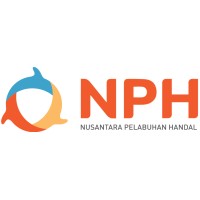
PT Nusantara Pelabuhan Handal Tbk
NPH was established in December 2003 as PT Kharisma Mutiara Agung Our vision to be a reputable global player in port business through innovative solution Our Business Terminal operation and Port Equipment Supply



NPH was established in December 2003 as PT Kharisma Mutiara Agung Our vision to be a reputable global player in port business through innovative solution Our Business Terminal operation and Port Equipment Supply

Premier réseau commercial de proximité en France, le groupe La Poste est organisé en 4 branches d’activité : Services-Courrier-Colis, Banque et Assurance, Distributeur physique et numérique, GeoPost/DPDGroup pour l'international. Présent dans plus de 63 pays, sur 5 continents, il a réalisé un chiffre d’affaires de 34,1 Mds€ en 2023. En 2021, le groupe La Poste est devenu la première entreprise publique à adopter la qualité de société à mission. 4 engagements sociétaux sont désormais inscrits dans ses statuts : • Contribuer au développement et à la cohésion des territoires • Favoriser l’inclusion sociale • Promouvoir un numérique éthique, inclusif et frugal • Œuvrer à l’accélération de la transition écologique pour tous Le groupe La Poste, avec plus de 232 000 collaborateurs, naturellement et historiquement engagé pour la société, se mobilise pour rendre ses activités plus durables au regard des enjeux sociétaux et environnementaux, et pour faciliter la transition écologique de tous les Français.
Security & Compliance Standards Overview












No incidents recorded for PT Nusantara Pelabuhan Handal Tbk in 2025.
No incidents recorded for La Poste Groupe in 2025.
PT Nusantara Pelabuhan Handal Tbk cyber incidents detection timeline including parent company and subsidiaries
La Poste Groupe cyber incidents detection timeline including parent company and subsidiaries
Last 3 Security & Risk Events by Company
Angular is a development platform for building mobile and desktop web applications using TypeScript/JavaScript and other languages. Prior to versions 19.2.16, 20.3.14, and 21.0.1, there is a XSRF token leakage via protocol-relative URLs in angular HTTP clients. The vulnerability is a Credential Leak by App Logic that leads to the unauthorized disclosure of the Cross-Site Request Forgery (XSRF) token to an attacker-controlled domain. Angular's HttpClient has a built-in XSRF protection mechanism that works by checking if a request URL starts with a protocol (http:// or https://) to determine if it is cross-origin. If the URL starts with protocol-relative URL (//), it is incorrectly treated as a same-origin request, and the XSRF token is automatically added to the X-XSRF-TOKEN header. This issue has been patched in versions 19.2.16, 20.3.14, and 21.0.1. A workaround for this issue involves avoiding using protocol-relative URLs (URLs starting with //) in HttpClient requests. All backend communication URLs should be hardcoded as relative paths (starting with a single /) or fully qualified, trusted absolute URLs.
Forge (also called `node-forge`) is a native implementation of Transport Layer Security in JavaScript. An Uncontrolled Recursion vulnerability in node-forge versions 1.3.1 and below enables remote, unauthenticated attackers to craft deep ASN.1 structures that trigger unbounded recursive parsing. This leads to a Denial-of-Service (DoS) via stack exhaustion when parsing untrusted DER inputs. This issue has been patched in version 1.3.2.
Forge (also called `node-forge`) is a native implementation of Transport Layer Security in JavaScript. An Integer Overflow vulnerability in node-forge versions 1.3.1 and below enables remote, unauthenticated attackers to craft ASN.1 structures containing OIDs with oversized arcs. These arcs may be decoded as smaller, trusted OIDs due to 32-bit bitwise truncation, enabling the bypass of downstream OID-based security decisions. This issue has been patched in version 1.3.2.
Suricata is a network IDS, IPS and NSM engine developed by the OISF (Open Information Security Foundation) and the Suricata community. Prior to versions 7.0.13 and 8.0.2, working with large buffers in Lua scripts can lead to a stack overflow. Users of Lua rules and output scripts may be affected when working with large buffers. This includes a rule passing a large buffer to a Lua script. This issue has been patched in versions 7.0.13 and 8.0.2. A workaround for this issue involves disabling Lua rules and output scripts, or making sure limits, such as stream.depth.reassembly and HTTP response body limits (response-body-limit), are set to less than half the stack size.
Suricata is a network IDS, IPS and NSM engine developed by the OISF (Open Information Security Foundation) and the Suricata community. In versions from 8.0.0 to before 8.0.2, a NULL dereference can occur when the entropy keyword is used in conjunction with base64_data. This issue has been patched in version 8.0.2. A workaround involves disabling rules that use entropy in conjunction with base64_data.